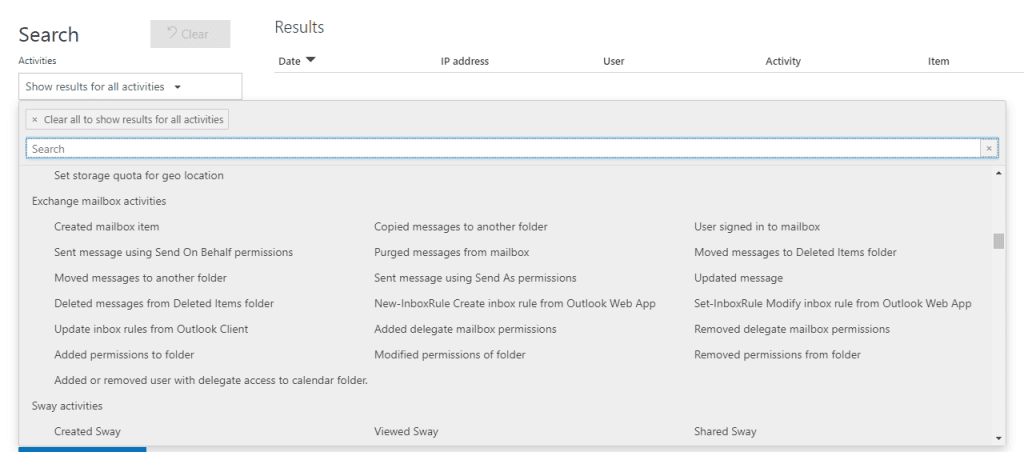Is Energy Australia's Go Neutral Initiative Greenwashing? A Legal Battle Ensues

Table of Contents
Understanding Energy Australia's "Go Neutral" Initiative
Energy Australia's "Go Neutral" initiative aims to offset the company's carbon emissions, effectively achieving carbon neutrality. The program outlines several key commitments: reducing emissions through operational efficiencies and investments in renewable energy sources, and offsetting remaining emissions through the purchase of carbon credits.
Energy Australia utilizes a combination of methods to reach its carbon neutrality goal:
- Investment in renewable energy projects: The company has invested in various renewable energy projects, including solar and wind farms. However, the scale and impact of these investments are central to the legal debate.
- Use of carbon offsets: A significant portion of Energy Australia's "Go Neutral" strategy relies on carbon offsets. The types of offsets used, their location, and their verification methods are subject to intense scrutiny. Many critics argue that the offsets used are not truly "additional" (meaning they wouldn't have happened without the purchase) and don't represent genuine emission reductions.
- Targets and timelines for achieving neutrality: Energy Australia has set specific targets and timelines for achieving carbon neutrality. However, the feasibility and transparency of these targets are key aspects of the legal challenge.
The transparency of the "Go Neutral" initiative has also come under fire. While Energy Australia publishes some information on its website, critics argue that the data provided is insufficient for independent verification and lacks crucial details on offsetting methodologies and project validation.
The Legal Arguments Against Energy Australia
A class-action lawsuit has been filed against Energy Australia, alleging misleading and deceptive conduct related to its "Go Neutral" program. The plaintiffs argue that Energy Australia's claims of carbon neutrality are unsubstantiated and constitute greenwashing.
The core allegations of greenwashing include:
- Insufficient evidence of genuine carbon emission reductions: Plaintiffs argue that Energy Australia's claimed reductions are insufficient to justify the "Go Neutral" label.
- Misleading marketing and advertising: The lawsuit alleges misleading marketing and advertising materials that exaggerate the environmental benefits of the "Go Neutral" initiative.
- Questionable use of carbon offsets: The legitimacy and quality of the carbon offsets utilized by Energy Australia are heavily contested. The plaintiffs argue that many of the offsets are of questionable quality and do not represent genuine emission reductions.
The legal basis of the claims centers on breaches of Australian consumer protection laws, specifically accusations of misleading and deceptive conduct in trade or commerce. Legal experts involved in the case cite several instances of allegedly misleading statements made in Energy Australia's marketing materials and public communications.
Examining the Evidence: Is It Greenwashing?
The legal battle hinges on the evidence presented by both Energy Australia and the plaintiffs. Energy Australia claims to have robust data supporting its emission reduction claims and the efficacy of its offsetting projects. However, independent verification of this data is limited, and the methodology used to calculate carbon emissions and offsets has been criticized as overly optimistic.
Key pieces of evidence under scrutiny include:
- Analysis of Energy Australia's renewable energy investments: The actual contribution of these investments to overall emission reduction is a central point of contention.
- Evaluation of the quality and legitimacy of carbon offsets used: Experts are examining the quality and additionality of the carbon offsets to determine if they represent real emission reductions.
- Independent verification reports (if any): The availability and credibility of independent audits are crucial in determining the validity of Energy Australia's claims.
A balanced perspective requires acknowledging both supporting and contradictory evidence. While Energy Australia has made strides in renewable energy investment, the heavy reliance on carbon offsets, coupled with questions regarding their verification and additionality, casts a shadow over the initiative's overall effectiveness.
Implications for Consumers and the Energy Sector
The outcome of this legal battle will significantly impact consumer trust in corporate sustainability initiatives. A finding of greenwashing could erode public confidence in similar programs undertaken by other energy companies. It could also lead to:
- Increased scrutiny of corporate sustainability claims: Companies will face heightened scrutiny in their environmental claims, necessitating greater transparency and independent verification.
- Changes in regulations surrounding green marketing: The case could prompt regulatory bodies to strengthen guidelines and enforcement measures for environmental marketing claims.
- Increased consumer demand for transparency and verifiable sustainability measures: Consumers will likely demand more robust evidence of genuine sustainability initiatives, driving a shift towards greater transparency and accountability.
The case has broader implications for the energy transition and the role of renewable energy. It highlights the need for clear standards and regulations governing carbon offsetting and the importance of prioritizing genuine emission reductions over offsetting strategies of dubious quality.
The Verdict on Energy Australia's "Go Neutral" Initiative – And What It Means for You
Whether Energy Australia's "Go Neutral" initiative is truly achieving its goals or constitutes greenwashing remains a matter of ongoing legal and public debate. While the company has invested in renewable energy, the heavy reliance on carbon offsets of questionable quality and the lack of full transparency raise serious concerns. The evidence presented, or rather, the lack of verifiable evidence, significantly weakens the company's claims.
This case underscores the critical need for corporate social responsibility and robust consumer protection laws. It highlights the importance of demanding transparency and verifiable evidence from companies making bold environmental claims.
Call to action: Stay informed about corporate sustainability initiatives. Research Energy Australia's "Go Neutral" initiative further, access independent analyses, and form your own informed opinion based on facts. Support truly sustainable energy options and demand greater accountability from energy companies. Share this article to raise awareness about greenwashing and the urgent need to hold corporations accountable for their environmental claims. Don't let greenwashing obscure the path to a sustainable future.

Featured Posts
-
 Real Madrid 3 2 Celta Vigo Tres Preguntas Y Tres Respuestas Clave
May 29, 2025
Real Madrid 3 2 Celta Vigo Tres Preguntas Y Tres Respuestas Clave
May 29, 2025 -
 Pokemon Tcg Pockets Latest Expansion A Wave Of Gen 9 And Shiny Cards For Free To Play Players
May 29, 2025
Pokemon Tcg Pockets Latest Expansion A Wave Of Gen 9 And Shiny Cards For Free To Play Players
May 29, 2025 -
 The Day I Lost My Job An Australian Womans Account
May 29, 2025
The Day I Lost My Job An Australian Womans Account
May 29, 2025 -
 Federal Investigation Into Millions Stolen Via Office365 Breach
May 29, 2025
Federal Investigation Into Millions Stolen Via Office365 Breach
May 29, 2025 -
 A Shocking Demon Transformation The On Set Experience
May 29, 2025
A Shocking Demon Transformation The On Set Experience
May 29, 2025
Latest Posts
-
 Washington D C In May 48 Pride Events Concerts And Exhibits
May 31, 2025
Washington D C In May 48 Pride Events Concerts And Exhibits
May 31, 2025 -
 Top 48 Things To Do In Dc This May Pride Month Celebrations And More
May 31, 2025
Top 48 Things To Do In Dc This May Pride Month Celebrations And More
May 31, 2025 -
 48 Events In Washington D C For May Pride Concerts And Exhibits
May 31, 2025
48 Events In Washington D C For May Pride Concerts And Exhibits
May 31, 2025 -
 Rbcs Earnings And The Rising Tide Of Bad Loans What Investors Need To Know
May 31, 2025
Rbcs Earnings And The Rising Tide Of Bad Loans What Investors Need To Know
May 31, 2025 -
 Addressing The Housing Crisis The Importance Of Provincial Action
May 31, 2025
Addressing The Housing Crisis The Importance Of Provincial Action
May 31, 2025
